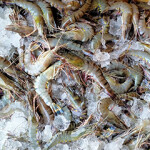Loch Long Salmon brings semi-closed salmon farming to Scotland

Joint-venture salmon farming company Loch Long Salmon Ltd. (LLS) has announced plans to introduce a number of semi-closed production systems in Scotland, with the first harvests expected in 2024.
LLS’s semi-closed systems are designed to improve the health and welfare of its farmed stock by excluding sea lice and therefore preventing the parasites from establishing a breeding population on the salmon, it said. The farming enclosures will separate the fish from the ocean environment by surrounding the farm with an impermeable bag.
Deep water free from juvenile sea lice and harmful plankton will be pumped into the farming enclosure via energy efficient low-head pumps. Oxygen will be added to the water as required.
These systems will also catch most of the organic waste, pump it ashore, and concentrate it into a valuable resource – potentially for use as an on-land fertilizer or in anaerobic digestion energy production.
According to Stewart Hawthorn, an LLS director and the former farming director at Dawnfresh, semi-closed systems have been used in Norway for more than eight years, and have showed success after many farming cycles.
“Our philosophy is that we should eliminate rather than treat the problem – and we can do that with these systems,” he said. “By using this type of farming system, we will have healthier fish that do not need to be constantly treated for sea lice. This means that the fish can be left to grow in a stress-free, clean environment.”
Five farming locations have already been identified by LLS where semi-closed farming systems can be deployed to grow fish from smolt transfer through to harvest size. Its first farm will be in Loch Long – at a site called Beinn Reithe.
Hawthorn told SeafoodSource that the plan is to have a maximum allowed biomass (MAB) of 4,000 metric tons (MT) at the site. LLS has been granted a Crown Estate Scotland Lease Option Agreement, and has also completed the Scottish Environment Protection Agency (SEPA) pre-screening process.
“We will apply for the CAR [Controlled Activities Regulations] discharge license later this year, then the formal planning application will be submitted in 2021,” Hawthorn said.
Beinn Reithe’s construction will take place in 2022, with the first stocking in the first quarter of 2023. The first harvest will be early 2024. The plan is to be stocking the fifth farm in the second quarter of 2025.
LLS has engaged corporate finance advisory firm Johnston Carmichael to assist in raising the first tranche of GBP 3 million (USD 3.9 million, EUR 3.3 million) to support the initial phase of development. The company was established by aquaculture services company Trimara Services in partnership with Simply Blue Aquaculture, part of blue economy developer, Simply Blue Energy, to be Scotland’s first fully-integrated salmon farming business exclusively using semi-closed farming systems. The objective is to establish a company that can raise 15,000 to 20,000 MT of salmon annually.
“Based on the site development plan, we will be harvesting planned biomass on a consistent annualized basis by the end of 2024, [or] beginning of 2025,” Hawthorn said.
He added that while LLS has not developed a detailed sales and marketing plan at this stage, its financial model is based on achieving average returns for commodity fish.
“However, we will have a unique product that will likely be able to be sold at a premium, based on the improved sustainability credentials of our farming process. This will generate additional revenue for the business, but this is not ‘required’ to make a commercial success of this venture,” he said.
The capital investment required to set up a semi-closed farming system is approximately twice the cost of a similar capacity conventional farm, Hawthorn said.
“We will also have some additional energy costs and oxygen costs that conventional farms do not have, as we are pumping water into the system and adding oxygen to maintain ideal conditions at all times for the fish,” he said.
However, the savings associated with the elimination of sea lice from its farming enclosures will offset these additional costs.
“We won’t have any direct treatment costs – no well-boat costs, no chemical costs, no cleaner fish costs, etcetera. We also won’t damage or kill fish during treatment processes – because we are not doing any sea lice treatments. So that will be an additional saving. Finally, we will get better growth and food conversion ratio because we are not starving fish before treatments, and because we are not stressing fish during treatments,” he said. “Overall, our cost of production will be similar to that currently being achieved in the Scottish salmon farming sector.”
Photo courtesy of Loch Long Salmon






Share